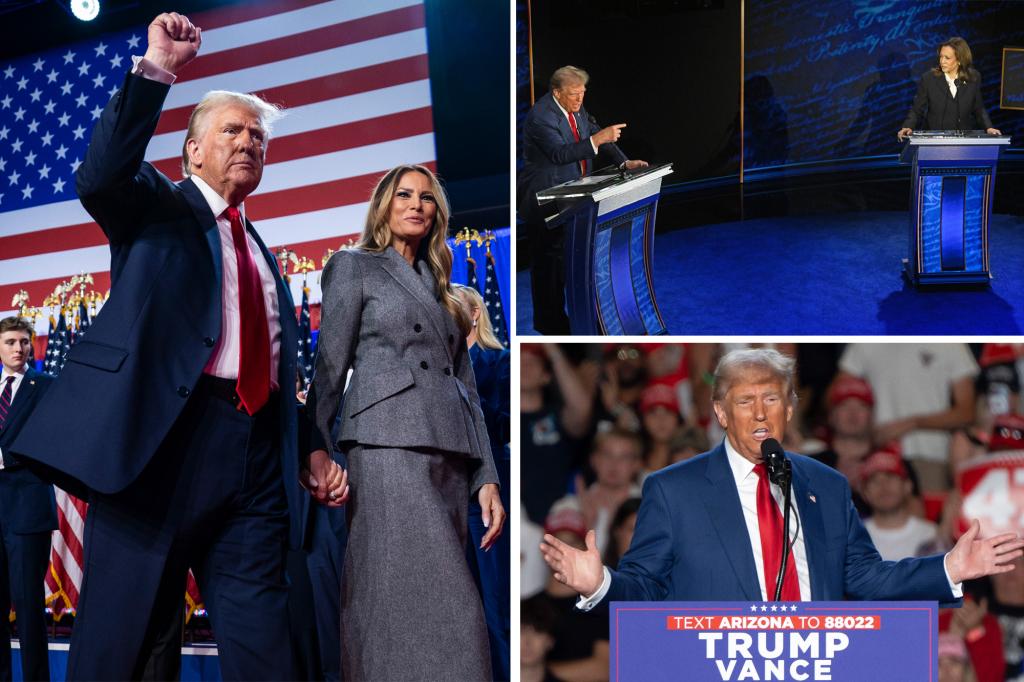Psychologists Successfully Forecast Trump’s 2024 Presidential Win
Psychologists achieved what political analysts and polls could not: they accurately predicted the outcome of the 2024 presidential election.
Before voting commenced, researchers from the University of Pennsylvania identified Donald Trump as the likely victor by examining how each candidate conveyed their interpretations of negative events.
In the closing weeks of the campaign, Trump’s mood appeared to brighten significantly, while Kamala Harris’s tone remained constant. This shift not only indicated Trump’s anticipated triumph but also predicted the size of his victory, as detailed in a recent study from Penn’s Positive Psychology Center.
“Beginning around October 10, Trump noticeably adopted a more positive outlook,” stated Martin Seligman, the study’s co-author and a psychology professor at Penn. “By the 27th, the disparity between him and Harris was quite pronounced.”
The research team evaluated 1,389 descriptions of adverse occurrences—ranging from conflict and crime to economic struggles—provided by both candidates. The analysis was based on speeches, interviews, and their single presidential debate occurring from early September to October 27.
To assess these narratives, the researchers employed the CAVE method (Content Analysis of Verbatim Explanations), a technique from positive psychology that examines how events are articulated. This allowed them to measure optimism by determining whether the causes were framed as temporary, specific, and manageable.
The more narrowly defined and solvable the issue presented, the more optimistic the message appeared.
Trump addressed over 1,000 unfavorable topics—more than four times the number raised by Harris—attributing these issues to external factors while asserting that solutions were attainable, often via his interventions, according to the study’s findings.
Conversely, Harris described significant, enduring dangers with minimal indication of resolution, Seligman noted.
In addition to narrative style, the researchers also evaluated emotional tone, the emphasis on past versus future, and discussions surrounding control and accountability. None of these factors correlated with the election results; optimism was the distinguishing element.
Seligman’s previous research indicated that optimism had accurately predicted the winner in nine out of ten elections from 1948 to 1984.
Following this finding, he advised political parties to incorporate optimism into their strategies; however, he discontinued this approach when he observed inauthentic expressions of optimism from candidates.
The method was reinstated for this election season due to Trump’s spontaneous communication style, which facilitated real-time evaluation.
Before Election Day, the researchers secured their forecast and disclosed it to four external assessors, including Wall Street Journal reporters Lara Seligman—Martin Seligman’s daughter—and Al Hunt, alongside University of Washington political scientist Dan Chirot and Hope College psychologist Dave Myers, prior to publicly announcing the results post-election.
“We seem to be among the few who accurately anticipated a Trump victory,” Seligman remarked.
In a related study, a separate forecasting model developed by Cornell University professor Peter Enns, which focused on economic indicators and presidential approval ratings, also accurately predicted Trump’s win across all 50 states.
These findings imply that voters are more inclined to support optimistic candidates who frame challenges as solvable rather than systemic. Seligman noted that Trump’s tendency to speak off-script provided researchers with an authentic view of his perspective.
“When optimism is heartfelt, there’s a strong indication that the American populace seeks hope and positivity,” he commented. “It reflects the inherently optimistic nature of American history.”

Passionate journalist and digital news editor with a keen eye for global affairs and emerging trends. As the founder and lead writer of RSS News US, he is dedicated to delivering accurate, insightful, and engaging content to readers seeking trustworthy news in a fast-paced world.


